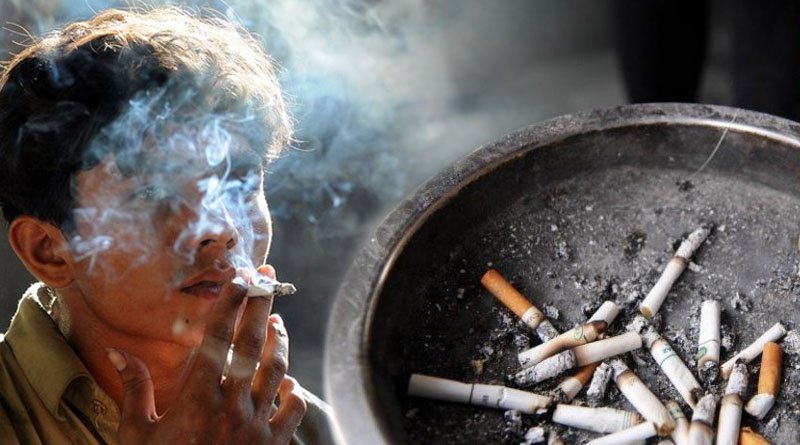WHO predicts that this number won’t go down significantly in the upcoming years despite health warnings, cessation campaigns, and expanded tobacco control measures.

In Pakistan, smoking contributes to 166,000 annual deaths, 31,000 of which are caused by secondhand smoking.
The World Health Organization predicts that this number won’t go down significantly in the upcoming years despite health warnings, cessation campaigns, and expanded tobacco control measures. These combustible cigarettes not only endanger the environment but also the human body.
The industry’s carbon footprint from the production, processing, and transportation of tobacco is equivalent to one-fifth of the CO2 produced by the commercial airline sector each year, according to the WHO report “Tobacco: Poisoning Our Planet,” which furthers the effects of global warming.
According to experts, the ultimate goal of completely eliminating the risks of climate change is to stop smoking, but doing so can be difficult and risky.Scientists around the world have been working for years to develop potentially less harmful substitutes that smokers can switch to as their initial step to stop smoking.
According to them, nations like Japan, the United States, the United Kingdom, Sweden, Norway, and Iceland took it upon themselves to reduce these figures by legalising HTPs, funding HTP research, and implementing Tobacco Harm Reduction (THR) strategies.
The results have been very positive, with the number of smokers and the associated risks sharply declining in the majority of these nations.
Secondhand smoking is exhaled by a smoker or that comes from the burning end of a cigarette, cigar, or pipe. It contains a mixture of over 7,000 chemicals, many of which are toxic and can cause cancer.
Breathing in secondhand smoke can be harmful to both adults and children. It has been linked to an increased risk of lung cancer, heart disease, stroke, and other serious health problems.
Children and non-smoking adults who are exposed to secondhand smoke are at increased risk of respiratory infections, asthma attacks, and other health issues.